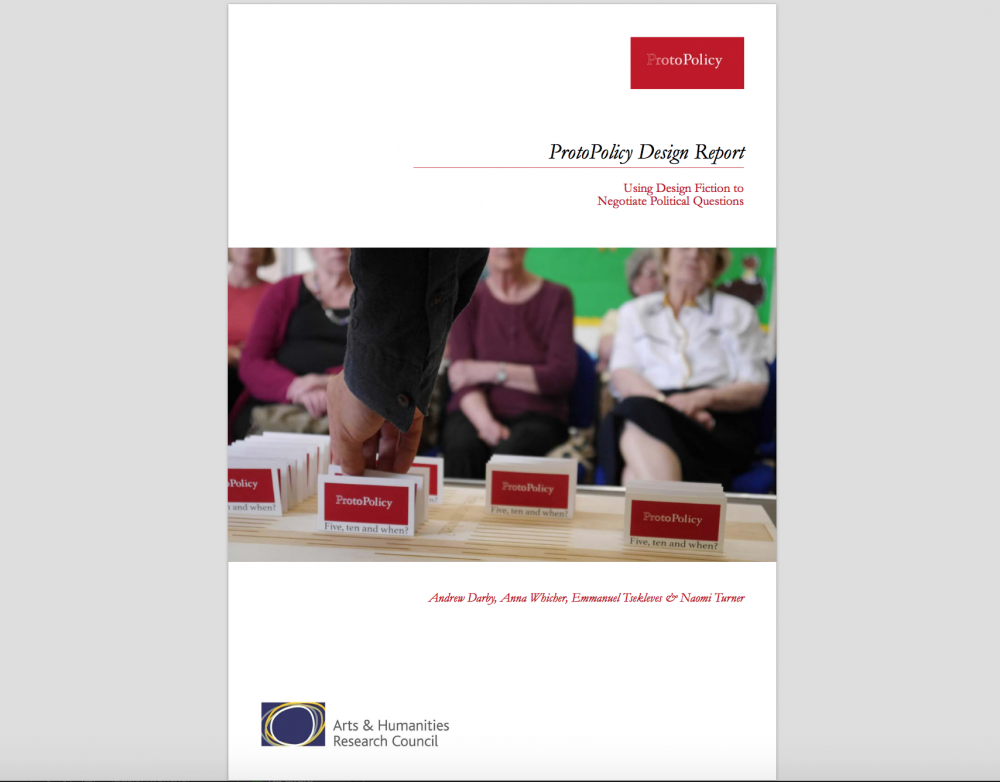Abstract
ProtoPolicy is a three month pilot project that ran from June to August 2015, which aimed to investigate how ‘design fictions’ – provocations such as texts, artefacts, images and films that conceptualise future scenarios – could be used to help politicians and community groups imagine the future implications of policy initiatives in creative ways. ProtoPolicy was part of the Arts and Humanities Research Council-funded project ProtoPublics, which aimed to support researchers and community partners to become active participants in ‘crafting new services, experiences, projects and policies that address con- temporary issues’. For the purposes of this pilot, ProtoPolicy focused on is- sues of ageing in place (people remaining in their homes rather than moving to institutional facilities) and isolation.
The research team ran a series of creative workshops with older people to respond to the ‘Ageing in Place’ policy agenda by co-cre ating future design fictions that envisage what a future of ‘flexible living’ – a space that has the benefits of independent living without the downsides of loneliness and vulnerability – might look like. Through this engagement, the design team created two design fictions with older people and community groups. SOULAJE is a self-administered Euthanasia Wearable. The design team created a ‘Proto- type’, ‘User Guide’ and mini film. Smart Object Therapist combines occupational health with experience in technology to ensure that future smart home appliances correspond to user needs. The design team created a job description for the Smart Object Therapist, intervention report and mini film. The design fictions were shared with civil servants and MPs at an event hosted in Westminster by All-Party Parliamentary Design and Innovation Group (APDIG) as well as through telephone interviews.
The findings reveal that design fictions appear to be more readily adopted by the civil service rather than politicians because of the shorter timescales usually adopted to take political decisions. However, through additional advocacy and research, the ProtoPolicy team seek to demonstrate that design methods, particularly design fictions, could contribute to a shorter decision-making cycles through rapid problem definition, co-developing solutions with citizens, rapid prototyping and refining concepts before full-scale deployment.

